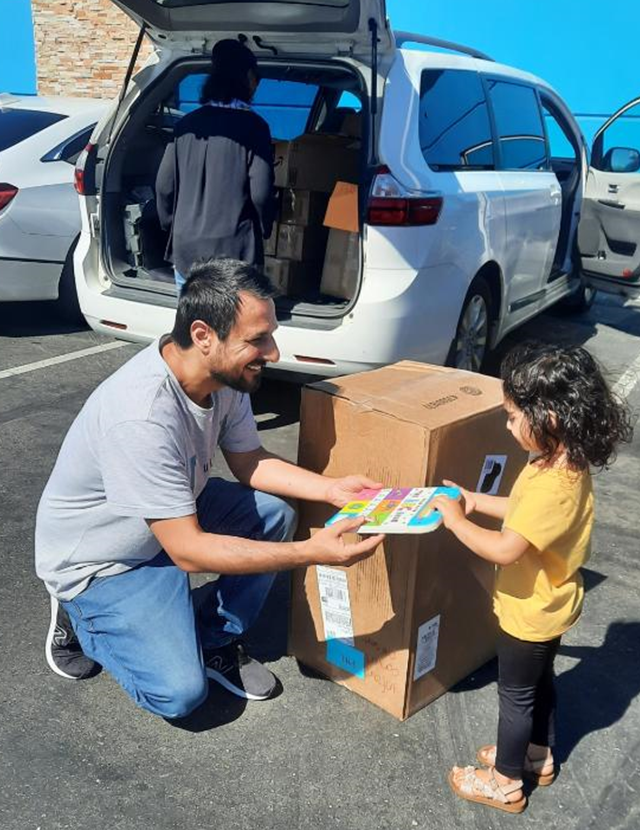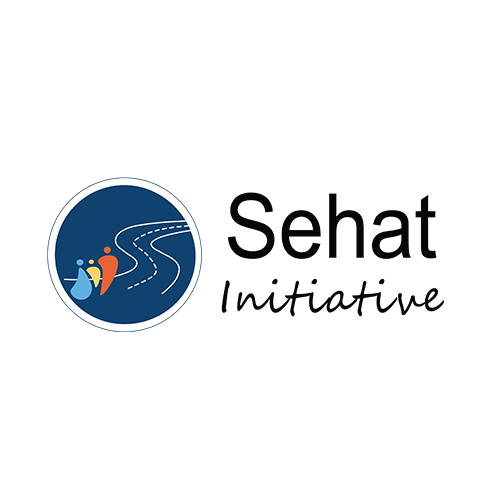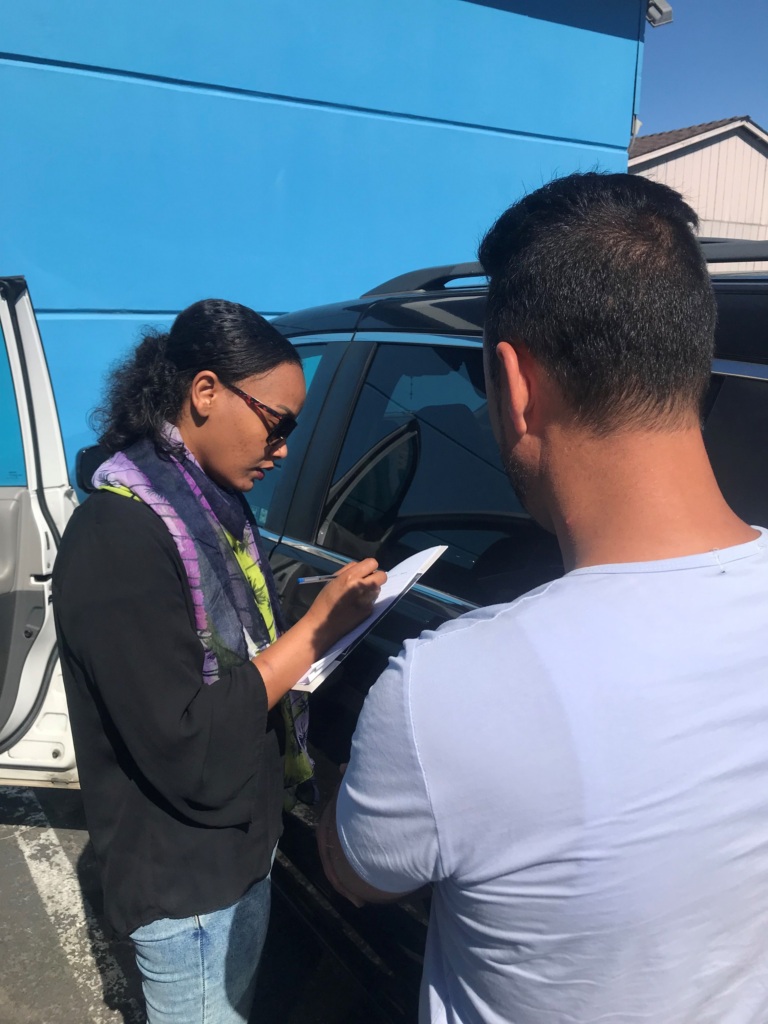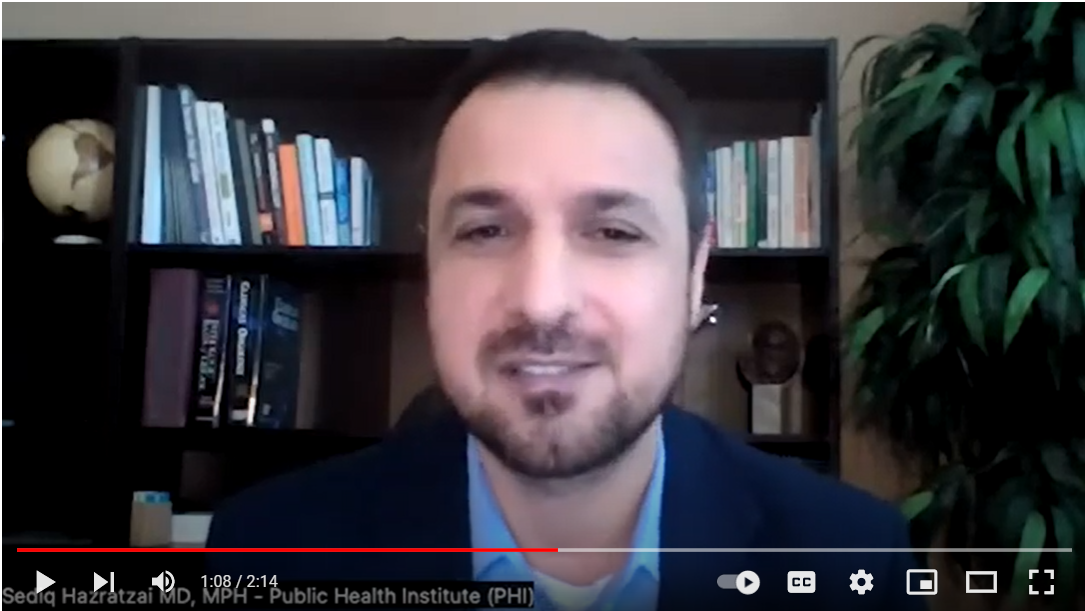A Trauma-Informed Approach to Address the Health of Refugee Children and Families
Program
Highlights

Sehat Initiative’s Refugee Family Support project connects newly arrived refugees and children, ages 0-5, with basic needs and health and well-being services and supports, provided by culturally-rooted staff who are also part of Afghan and refugee communities.
63 clients served
273 navigation services provided
147 basic needs services provided
50% of clients improved knowledge of who to contact for basic needs
77% of clients reported access to basic needs helped alleviate financial burden
-
Focus Areas
Capacity Building & Leadership, Health Care & Population Health, Healthy Communities, Women, Youth & Children -
Issues
Adverse Childhood Experiences, Mental Health, Nutrition & Food Security, Population Health, Violence Prevention -
Expertise
Health Education & Promotion, Outreach & Dissemination, Technical Assistance
Due to growing conflict, violence and poverty, millions of children and adults from Afghanistan and the Ukraine have been forced to flee their country, leaving behind everything that they have and know—their homes, country, families, and way of life. Many have also experienced the loss of loved ones. Upon arriving in the United States, refugee families face additional challenges, such as a lack of economic resources, social networks, healthcare access, literacy, and knowledge of language and culture. Children also develop significantly within the first five years, and the challenging and traumatic experiences experienced by refugee children can cause great emotional, physical, social and mental stress, impacting their development.
Zarmina started as a client with PHI’s Refugee Family Support project after escaping challenging conditions in Afghanistan.

The conditions in Afghanistan got so bad, and I couldn’t longer stay in my country because I was working in an international organization. After we came to California, we started a new life; it was very different to me. When we came here, we had nothing, we didn't have any home things or any clothes. Then we met an American lady...She was working for one of the organizations as a volunteer. She helped us with a lot of things, she bought us home supplies, clothes and food. She was so kind. She did all the paperwork for me. Then slowly I registered in PHI as a client. The first time I talked to Esra [of PHI’s Sehat Initiative], we talked for about an hour. She told me about a lot of resources.Zarmina
Health Educator for the Sehat Initiative at the Public Health Institute
The Sehat Initiative at the Public Health Institute provides humanitarian and health supports to newly arriving refugee families from Afghanistan and the Ukraine to address their critical health and well-being needs. Founded by medical and public health experts from within the refugee community, The Sehat Initiative serves as a crucial bridge between refugees and their broader health and social environment and focuses its efforts in three core areas:
- Educating refugees on health and wellness and improving their access to healthcare services in the United States
- Training service providers on refugee health profiles and evidence-based, culturally appropriate trauma-informed services
- Conducting refugee health research and evaluation by employing validated scales and methods tailored for refugees
Refugee Family Support Project
In partnership with UC Davis and with funding from First 5 California, the Sehat Initiative’s Refugee Family Support project connects newly arrived refugees with children, ages 0-5, to important services and support as they resettle in Sacramento County, California.
 Financial constraints were a common and ongoing concern for refugee families, making it difficult for them to afford necessities. The project helps to increase access to basic needs for refugee families, especially those with children. One of the Sehat Initiative’s health educators conducted more than 40 home visits to distribute diapers and gift cards to families.
Financial constraints were a common and ongoing concern for refugee families, making it difficult for them to afford necessities. The project helps to increase access to basic needs for refugee families, especially those with children. One of the Sehat Initiative’s health educators conducted more than 40 home visits to distribute diapers and gift cards to families.
The project provided services such as: 1) general navigation services, including assistance in completing applications and paperwork, making appointments, referrals to resources, transportation assistance, among other activities that connect families to services; 2) language support; 3) basic needs; 4) housing vouchers for emergency situations; 5) health education workshops that are culturally and linguistically responsive to the needs of clients; 6) mental health assessments & support and 7) health research to understand the challenges and needs of refugees.
Over the course of a year (from October 2022 to September 2023), the Refugee Family Support project also captured the following positive outcomes:
- The project served 63 clients.
- 273 navigation services were provided, connecting clients to health and well-being services.
- 147 basic needs services were provided (i.e. diapers, strollers, car seats and $50 gift cards).
- Three educational sessions were offered through Zoom, where key problems such as mental health, child health, family planning, breast and cervical cancer screening, and adolescent health were addressed with clients.
- Connections were made with resettlement agencies, community-based organizations, and faith-based organizations to help support clients.
The Refugee Family Support project doesn’t just provide services; it also encourages the active involvement of and forging partnerships with community members. The Refugee Family Support project shares trust and power with the Afghan refugee community by welcoming and encouraging individuals, like Zarmina, with refugee backgrounds to join the program, while honoring their lived experiences, cultural ties, and cultivating opportunities where they can contribute positively to the community.
I started working as a volunteer in PHI from October 2022 to November 2023. During my volunteer time, I've learned a lot of new things. Even though I worked in Afghanistan for 16 years with people and society. I'm grateful for the job that I have now, because I never thought I would become that successful in 2 years.Zarmina
Health Educator for the Sehat Initiative at the Public Health Institute
Today, Zarmina is a paid Health Educator for the Sehat Initiative at the Public Health Institute, recognized for her commitment to advancing the quality of life for her community.
The Value of Funders and Partners
The expansive range of services offered to refugees and their families was made possible through the generous funding and support by First 5 California. Sehat Initiative staff were able to effectively establish connections with several resettlement agencies, faith-based groups, and community-based organizations. These groups included Opening Doors, Inc., the International Committee of Rescue, the Muslim American Society – Social Services Foundation, Sacramento Office of Education, Sacramento Food Bank, UC Davis MINDs Institute, Elica Health, among others. The valued partners offered expertise and support that have not only successfully facilitated client referrals but also provided essential assistance.
…PHI often works with different stakeholders and partners, which facilitates networking and collaboration, and this enables the project to benefit from the resources and diverse perspectives. The Refugee Family Support Project has built strong connections with resettlement organizations, such as Opening Doors Inc., International Committee of Rescue (IRC), and many other agencies, on the existing foundation that PHI has established. This collaborative model not only amplifies the impact of the Refugee Family Support Project but also exemplifies PHI's dedication to inclusive and community-driven solutions.Sehat Initiative
Zarmina’s journey with Refugee Family Support is both a testament to her resilience and a reflection of the project’s impact on community and individuals. Zarmina navigated the displacement process and found a way to regain her self-assurance, cultivate her leadership capacity, and rebuild her capabilities here in the United States. Her journey shows the power of community engagement and her significant resilience, adaptability, and personal and professional growth.
Learn more about the Sehat Initiative

PHI’s Sediq Hazratzai, MD, MPH discusses his work at PHI’s Sehat Initiative with Afghan and Ukraine refugees, displacement and the triple trauma paradigm. Learn more.
Work With Us
You change the world. We do the rest. Explore fiscal sponsorship at PHI.
Support Us
Together, we can accelerate our response to public health’s most critical issues.
Find Employment
Begin your career at the Public Health Institute.
